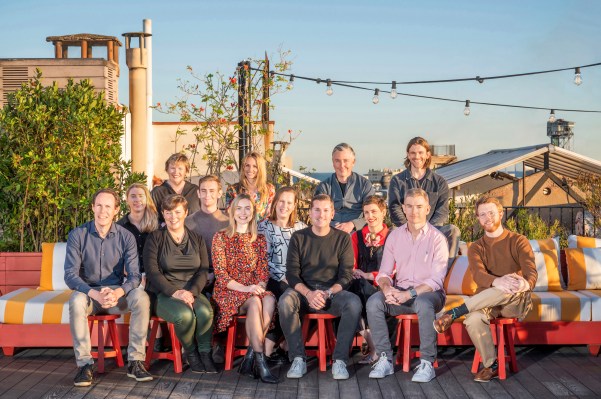Startups in Europe, faced with an ongoing economic slowdown in the region, continue to struggle on the fundraising front. Meanwhile, European VCs that are hedging their bets by growing their focus on startups that either have a global/U.S. play in mind — or are in the U.S. already — are seeing a lot of interest from LPs. TechCrunch has learned exclusively that Frontline Ventures has raised $200 million across two funds, named Frontline Growth and Frontline Seed, to keep making bets across the pond.
It’s not the only one: Giant Ventures in January closed two new funds totaling $250 million to invest in startups on both sides of the Atlantic.
Frontline already had a reputation for investing across both Europe and North America; its new funds will continue to follow that strategy, focusing specifically on B2B software companies. Following wider trend lines among other VCs in the region, the new seed fund will favor European ventures, while the growth fund will focus on U.S. startups.
Frontline believes that U.S. scale-ups, generally, have much better odds at succeeding when they expand their operations to the other side of the Atlantic. “Though it is a traditionally undervalued market, Europe accounts for over 30% of global revenues of top-performing B2B software companies at IPO,” Brennan O’Donnell — the co-lead of Frontline Growth with Stephen McIntyre — said in a statement.
“Traditionally undervalued” is well-worn phrase applied to Europe’s venture landscape. And stats detailing how funding has dropped off since 2021 do not help. However, things aren’t quite as bad as the headlines seem to state once you stop comparing recent investment trends to the boom times of 2021 and early 2022. Startups on the continent still raised more capital last year than they did back in 2019, according to a report by law firm Orrick. And Europe was the only major region to see investment levels remain above pre-pandemic norms — Asia and North America both fared poorly by that metric.
O’Donnell and his partners at Frontline have been vocal about Europe’s value as a market for some time and have even corroborated it with some research of their own. Frontline wants to ensure that its U.S. companies don’t leave money on the table by not expanding to Europe when they should.
Expansion roadmap
O’Donnell told TechCrunch that when Frontline helps portfolio companies navigate expansion to another market, it focuses on timing, go-to-market strategy, talent, and organizational design and location.
That’s by order of importance, and a company’s location should be a derivative of the previous three aspects, O’Donnell said. “Ultimately, location comes down to where your customers are and where the talent base that you need to effectively support those customers is.”
Frontline has already put this framework into action over the last few years, supporting portfolio companies like HR software company Lattice and compliance platform Vanta with expanding to Europe.
“Lattice expanded at a time when it wasn’t obvious,” O’Donnell explained. Although the company put its plan into action during the pandemic, when people still weren’t actively getting on planes, there was also a sense that the 2020 dip wouldn’t last, he said, adding that there were some tailwinds for HR tech. Fast-forward a few years, and that decision proved “very successful.”
One of the pitfalls Frontline warns against is “success amnesia”: Just because a company enjoys a certain level of success in the U.S. doesn’t mean it will fare well in Europe, too, without a careful strategy.
“Vanta grew as quickly as it did during our first 18 months in Europe thanks to Frontline’s guidance,” said Christina Cacioppo, co-founder and CEO of Vanta. “We tripled our customer base, quadrupled our team, and cemented Vanta as the market leader globally thanks to Brennan, Stephen and the Frontline team.”
Besides its partners and offices in London, Dublin, Palo Alto and New York City, Frontline has also built a community of executives in the European and Middle Eastern region to form a network that its portfolio companies can tap. “Over the last couple of years, we have pulled together a community for the top 200–250 VPs and GMs of EMEA, and we do regular events.”
Speaking about the firm’s current portfolio, O’Donnell said that he anticipates an IPO for one of its investments, likely one of its mature, growth-stage startups — within the next 18 months, although he didn’t specify which one.
Talking of Frontline Seed, O’Donnell noted the firm has an “especially strong track record when it comes to helping companies raise their Series A.” Considering that pre-seed and seed investments haven’t slowed down as much as later stages, avoiding this bottleneck could be of value to European startups hoping to become transatlantic scale-ups, or perhaps even IPO candidates.
